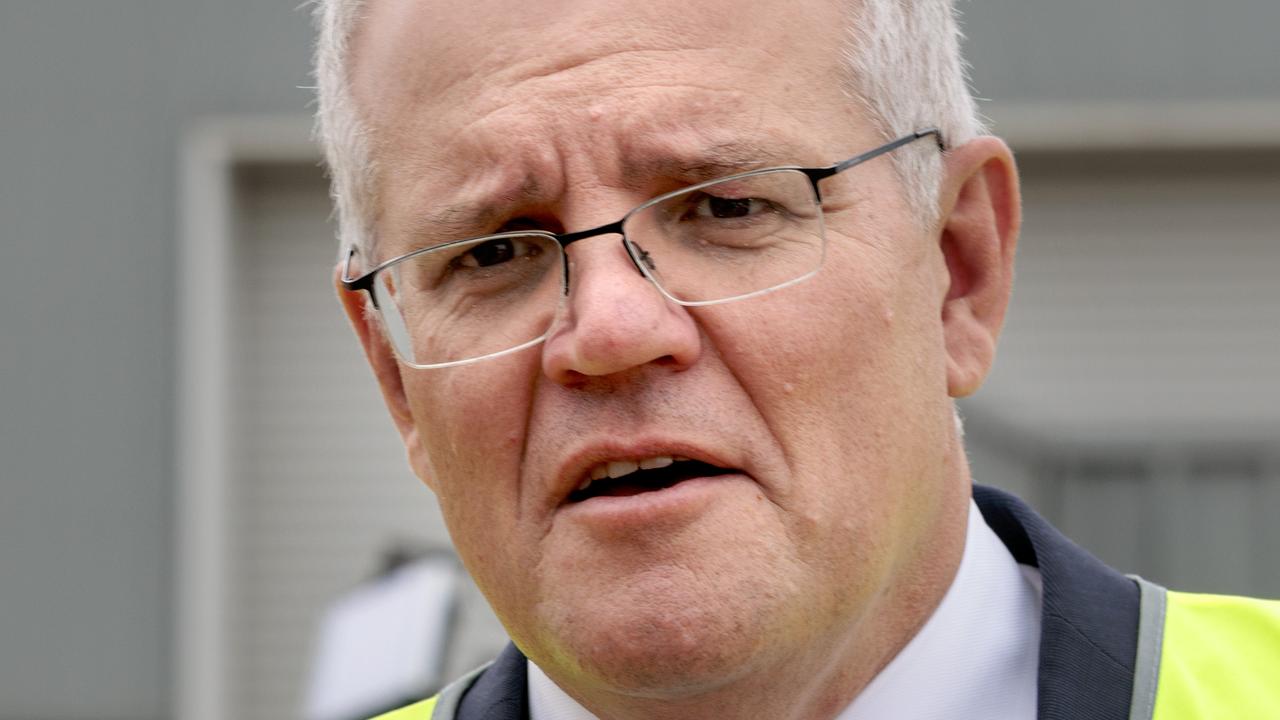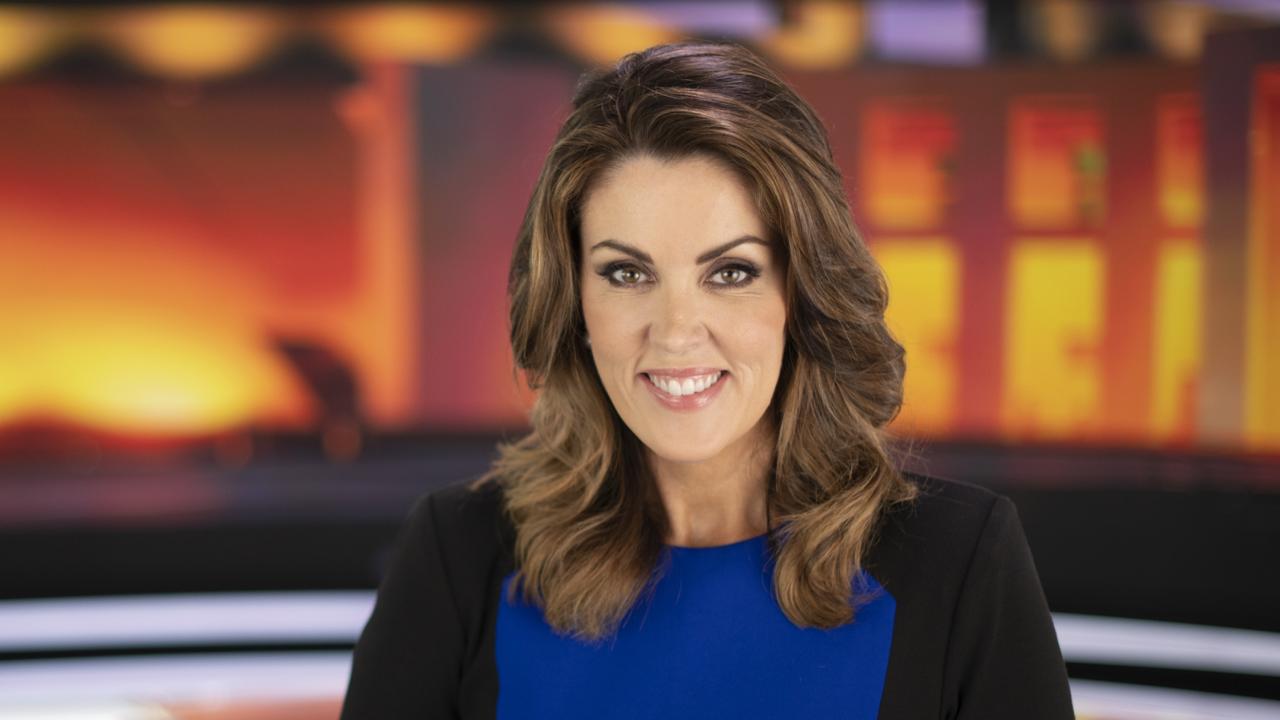Federal election 2019: Scott Morrison and Bill Shorten go to war on carbon costs
Well, that’s awkward. Just a day after distancing himself from Tony Abbott, Scott Morrison has run into the former PM while at church.
On the campaign trail yesterday, Scott Morrison seemed to distance himself from former Prime Minister Tony Abbott.
So, it might’ve been a tad awkward when the pair crossed paths at a Good Friday church service in Sydney’s southwest today.
Mr Morrison is taking a break from active campaigning over the East long weekend — as is Labor leader Bill Shorten — but the cameras were there to see him and wife Jenny arrive at St Charbel’s Catholic Maronite Church in Punchbowl.
And they captured the moment Mr Morrison came face-to-face with Mr Abbott for the first time since the campaign was called last week.
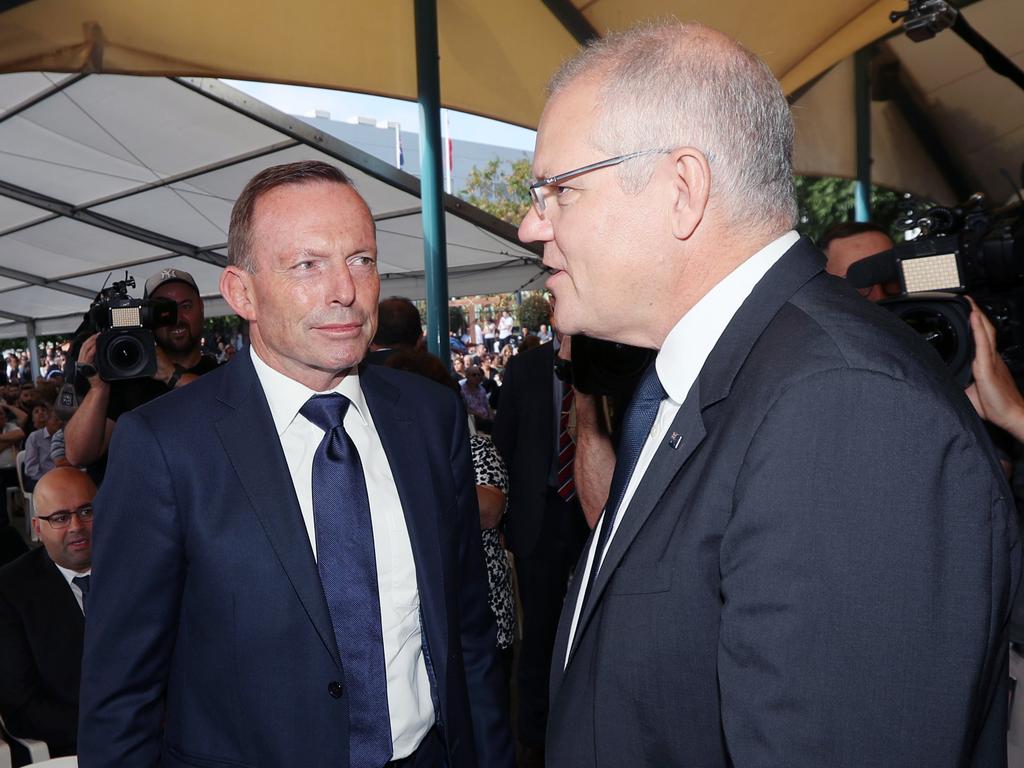
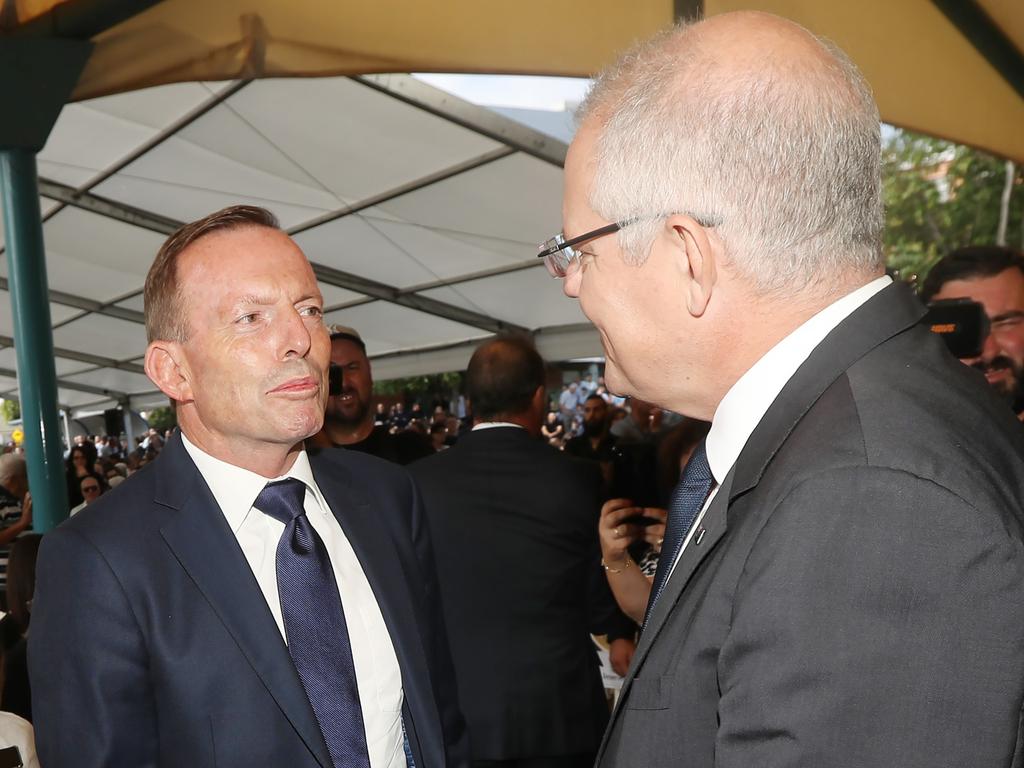
In Tasmania yesterday, the PM performed something of an about-face when he walked back comments from days earlier about his willingness to campaign with Mr Abbott and a plan to promote him should the government win the election.
“I haven’t made any comments on those things,” the PM told news.com.au.
When asked about his comments at the earlier press conference, he said: “I haven’t given any suggestion one way or the other on any of those things.”
It comes in the wake of Mr Abbott’s comment that he is willing to lead the Liberals again if they lose government.
While a Coalition win would give Mr Morrison a stronghold on the leadership, if he loses, the role would be thrown open.
“It will be up to the party room,” Mr Abbott told an election forum at Manly Yacht Club on Monday evening.
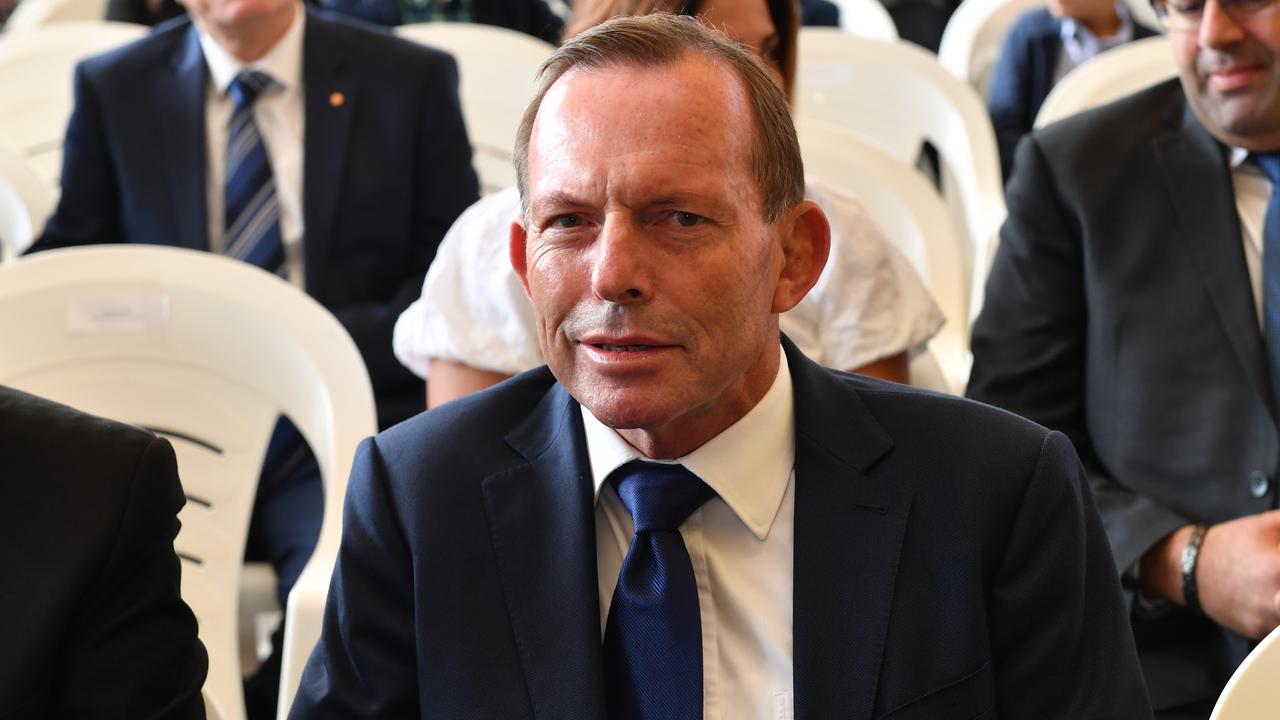
“If they want me, they will need to invite me. But I am not expecting that.
“I am not going to shoulder anyone aside for the top job because for me it has never been about that.”
Meanwhile, Opposition Leader Bill Shorten and his wife Chloe paid a Good Friday visit to the Salvation Army’s Lighthouse Cafe in Melbourne today.
The pair handed out food and spoke to volunteers, and also spent some time with visitors.
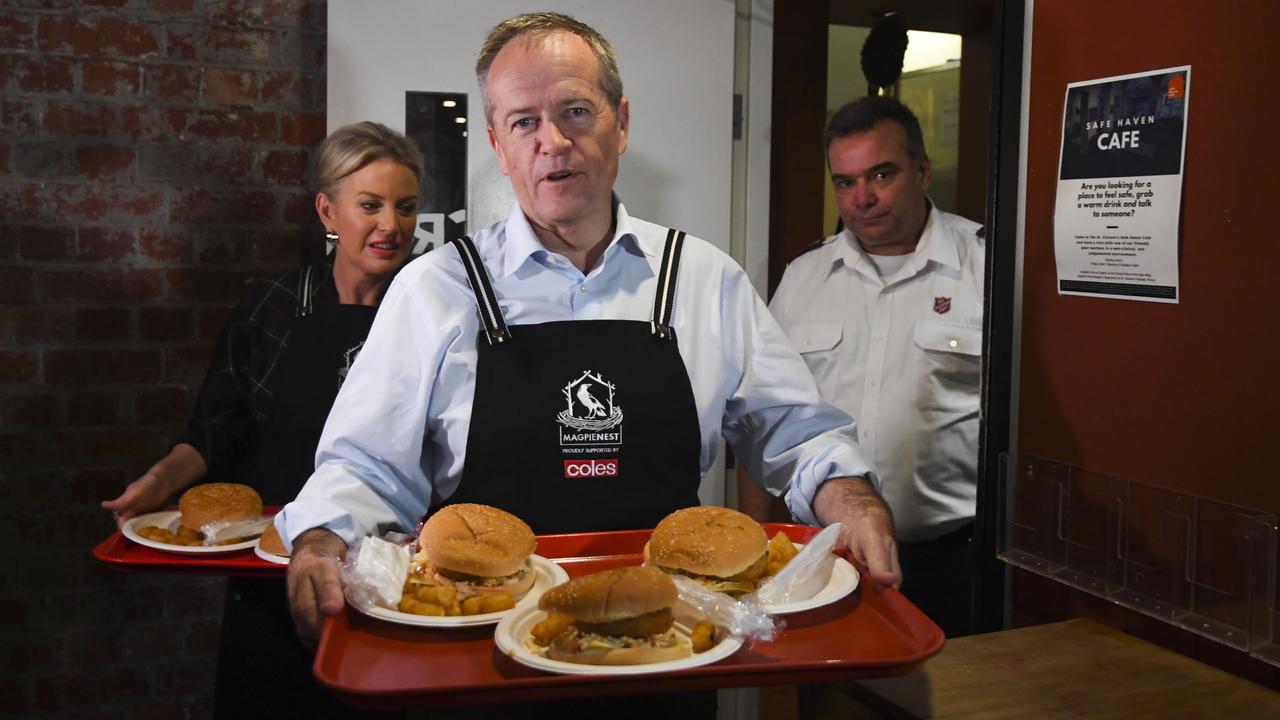
Trevor Wulf chatted to the Labor leader about his story of recovering from gambling, alcohol addiction and homelessness to now work as a cleaner.
“He’s all right,” Mr Wulf said after speaking to Mr Shorten. “Politicians are politicians, they do the right thing until they get into power.”
HOW ARE YOU FEELING?
The first week of the election campaign has not filled voters with joy or optimism.
As Prime Minister Scott Morrison and Labor leader Bill Shorten crisscrossed the country to pitch themselves to Australia, news.com.au was measuring sentiment in each electorate.
By polling voters in the area they live, asking them to rate their feelings as the campaign wages on, we can get a sense of the electoral mood.
Give it a go — put in your electorate and rate your feelings and see how your fellow voters are faring.
It’s not good so far, it seems.
Our sentiment tracker shows 24 per cent of Aussies are worried, 23 per cent are depressed and 20 per cent are indifferent, or “meh”.
Only 8 per cent are stoked with the election campaign so far, 13 per cent are happy and 12 per cent rate themselves as furious.
It comes after a week of confusion over the economic impact of both major parties’ climate change policies, Mr Shorten’s heated exchange with a journalist and his superannuation fib.
‘MISTAKE’ VOTERS CAN’T GET OVER
Australian voters can’t seem to agree on much these days.
Whether it’s climate change, immigration or the importance of a Budget surplus, opinions tend to be divided more than ever.
But there’s one thing that an overwhelming majority of people believe — dumping Malcolm Turnbull last year was a mistake.
That surprising consensus is the result of analysis of the ABC’s Vote Compass data, drawn from more than 150,000 responses over a two-week period this month.
It found that 78 per cent of all voters believe replacing Mr Turnbull with Scott Morrison was the wrong call.
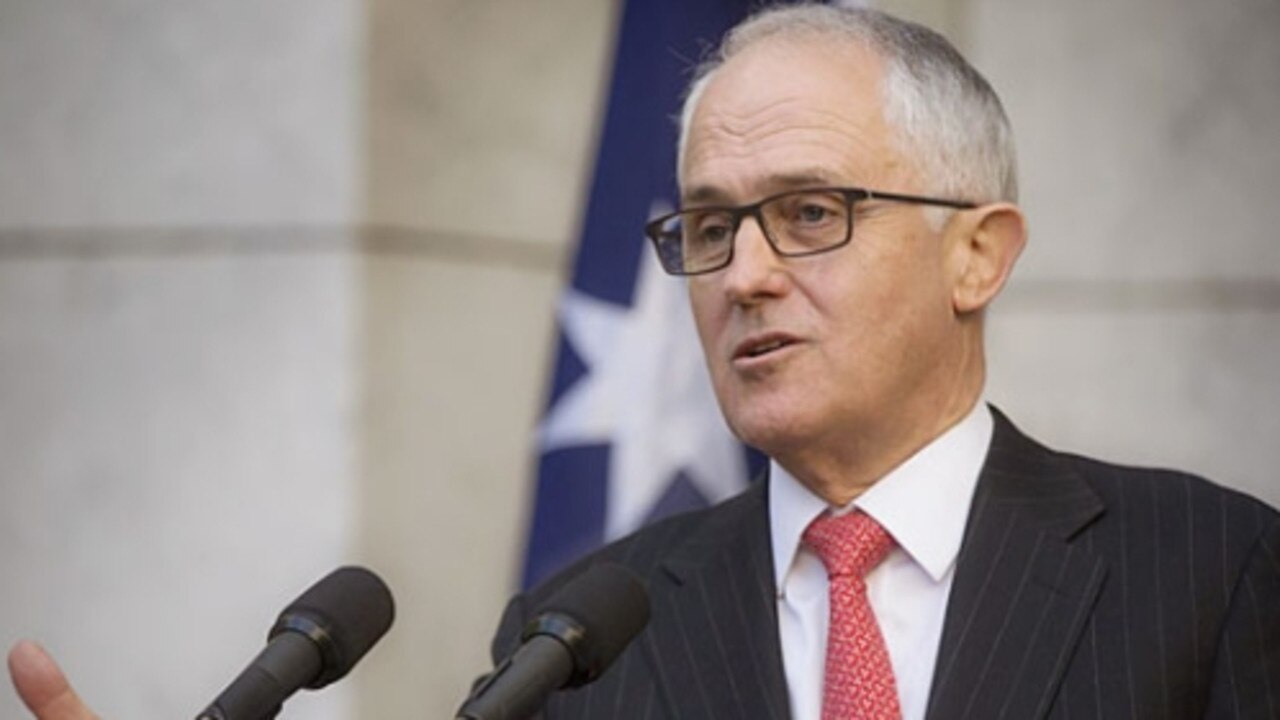
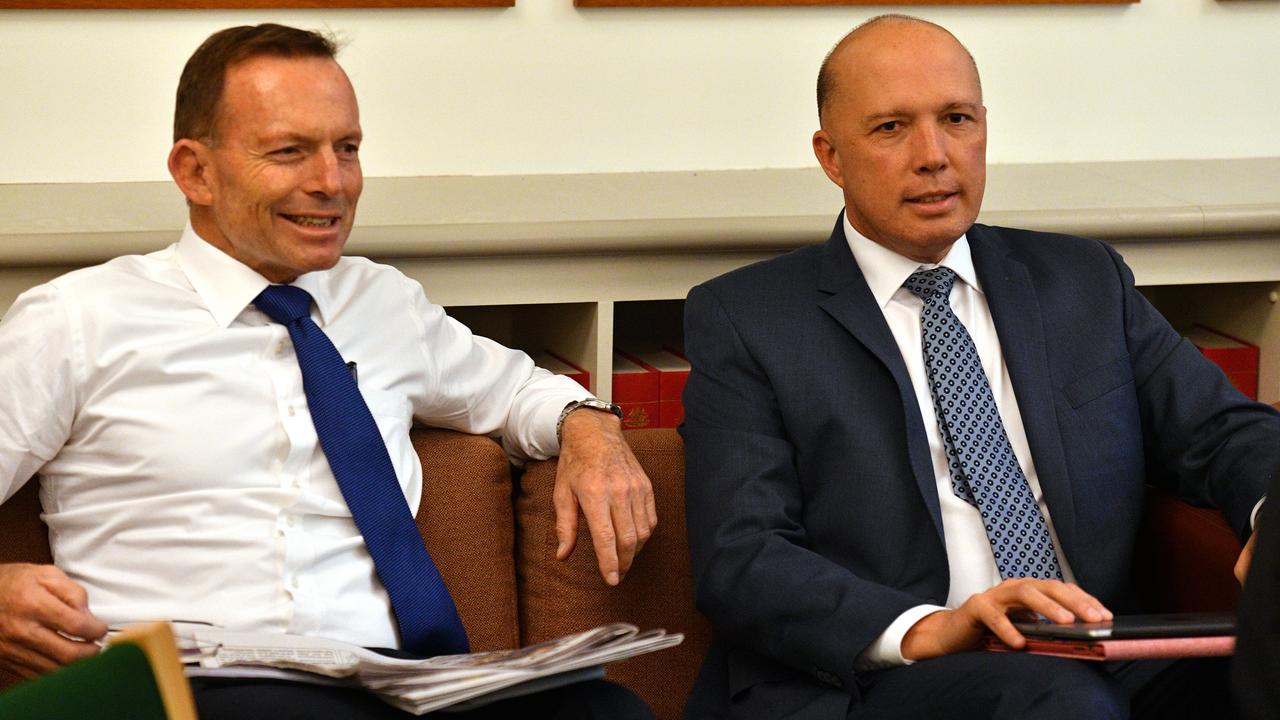
Most voters who identified as Coalition supports also believe it was a mistake, with 42 per cent thinking the decision was good.
It’s in stark contrast to the public sentiment surrounding previous deposed PMs.
During the 2013 election, Vote Compass found 60 per cent of people believed Labor dumping Julia Gillard to return to Kevin Rudd’s leadership was a good call.
And in the 2016 campaign, a whopping 81 per cent thought replacing Tony Abbott with Mr Turnbull was the right decision.
RELATED: Bill Shorten’s blind spot exposed on the campaign trail
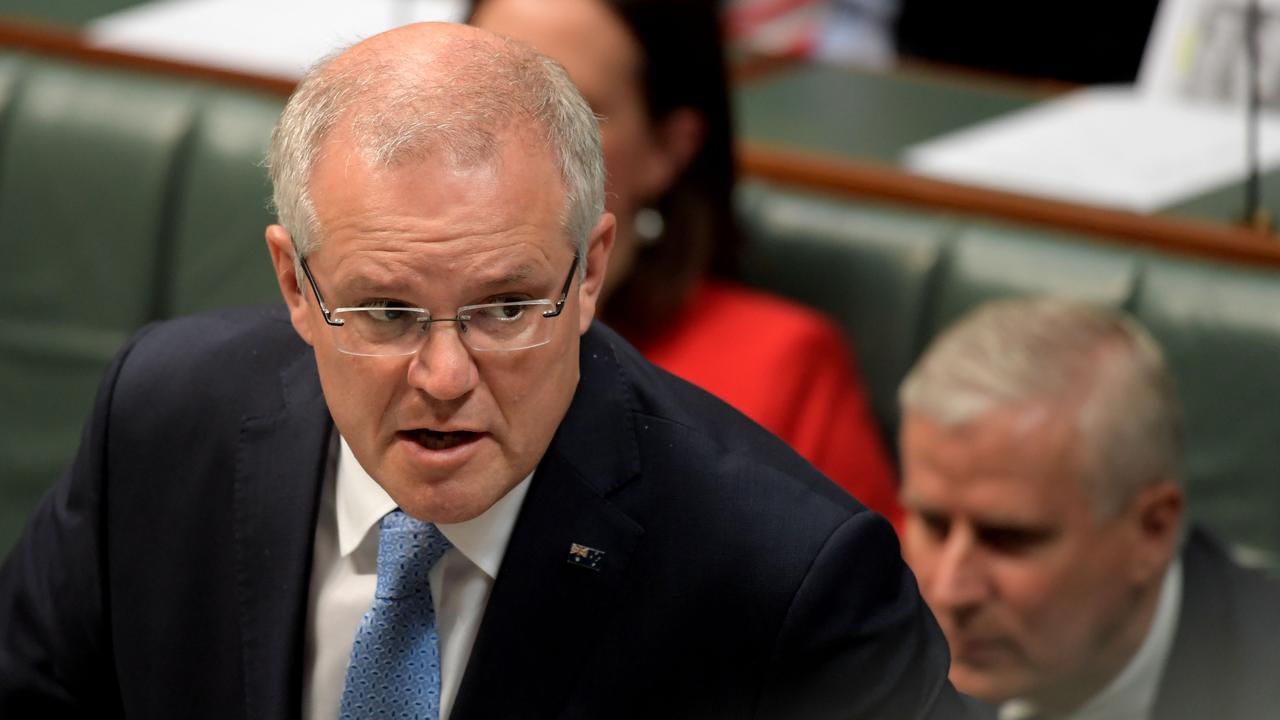
Last year’s coup was led by Queensland MP and Home Affairs Minister Peter Dutton, who failed to rouse enough support from his colleague to succeed at a ballot.
He was backed by Mr Abbott, who has been seen as a destabilising force on the backbench.
Labor has seized on this by rolling out a series of advertisements to remind voters of the roles they and other major Coalition figures played in bringing down Mr Turnbull.
It’s designed to tap into a general discontent — particularly in Victoria, where the former PM was particularly popular.
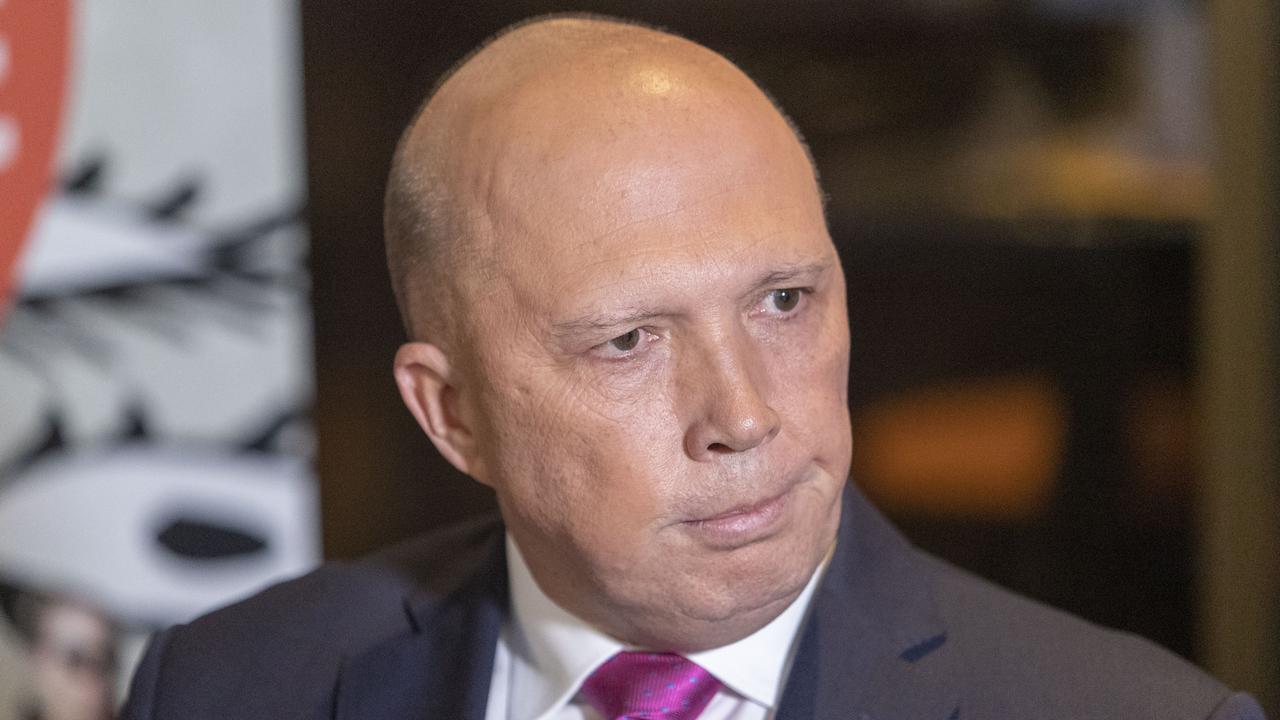
In addition to Mr Dutton, the campaign targets Michael Sukkar, who is under pressure in Deakin, and Greg Hunt, who is polling poorly.
The public broadcaster polls people each election to get a sense of their views on a variety of issues. While the questionnaire is anonymous, the ABC collects data on age, gender, past voting patterns, location and education level.
CARBON SAGA CREATES CONFUSION
Bill Shorten and Scott Morrison continue to brawl over climate change policy, with the Prime Minister saying Labor’s emissions reduction plan could cost the economy significantly.
It has been claimed that the Opposition’s approach would cost businesses $25 billion by forcing them to buy international carbon credits to offset their emissions.
Mr Shorten has said that figure, reported by The Australian on Thursday, is a lie.
For what it’s worth, the PM too is sceptical about the number. He said Government modelling indicated it was much, much more.
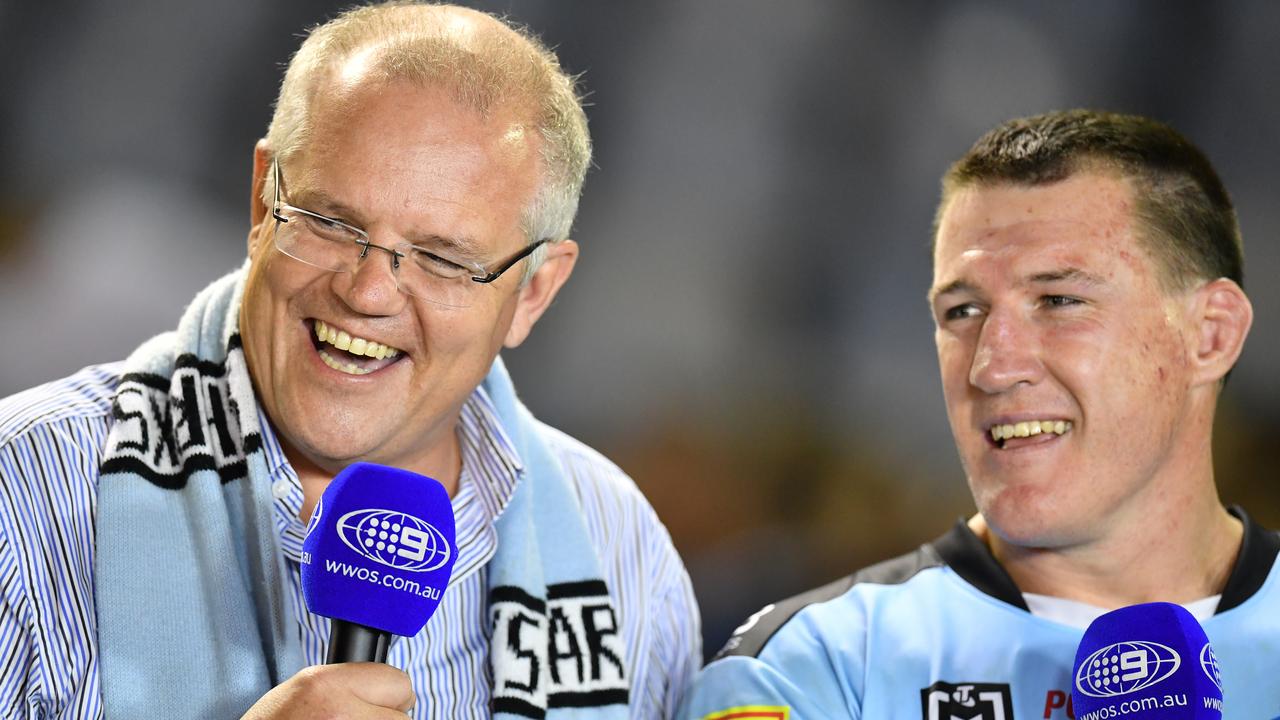
But the Coalition is unable to put a figure on its own plan to cut emissions — somewhere between 26 to 28 per cent by 2030 — simply saying it was considerably less of a financial burden.
Both parties have seized on a report by Professor Warwick McKibbin, which the economist authored in 2015, to support their respective claims.
Labor says the analysis proves their model of using international credits is wise, while the Liberals believe it spells out the enormous cost of such an approach.
Today, in an interview with The Sydney Morning Herald, Professor McKibbin said his most recent work showed the economic impact was now “a small fraction”.
And he backed using international carbon permits to achieve Labor’s 45 per cent reduction target.
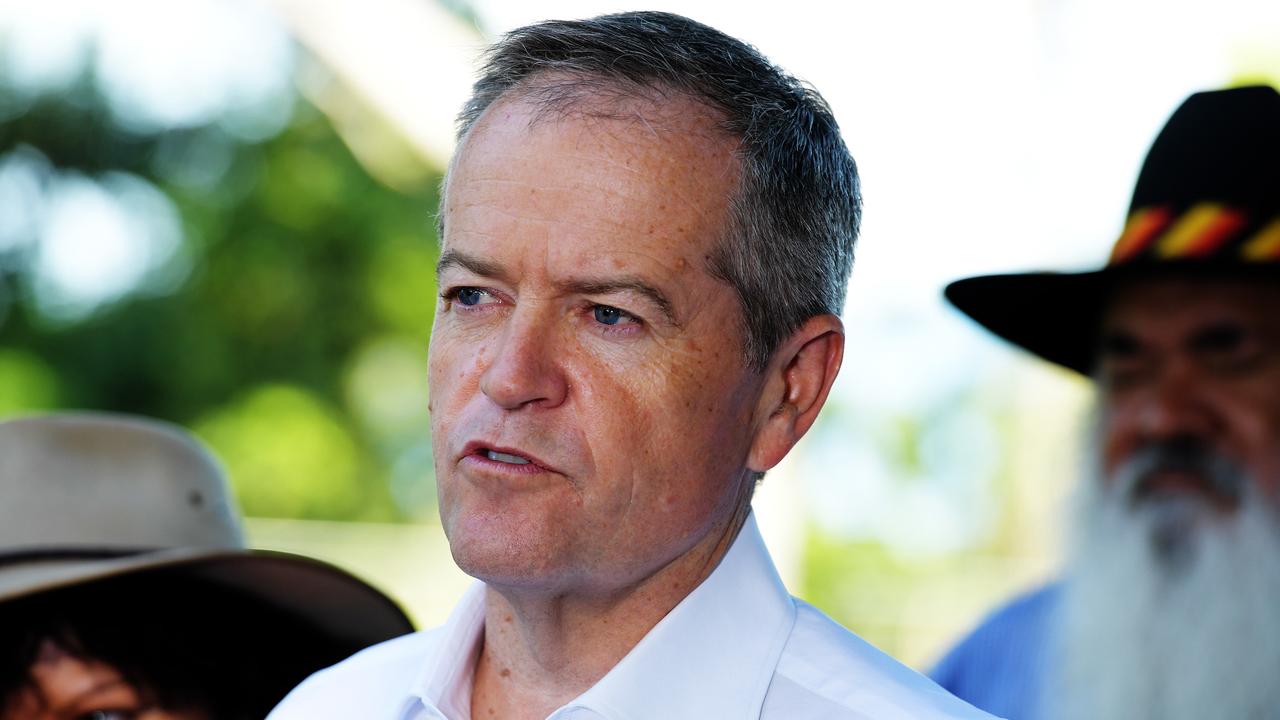
But The Daily Telegraph today reports that Professor McKibbin’s estimate is that Mr Shorten’s policy could cost billions of dollars more than the Coalition’s lower goal.
“By the time you get out to 2030, the difference between where (gross domestic product) is under the two scenarios is probably close to $60 billion or more. That’s the difference between those two scenarios in that year,” he told the newspaper.
“You can argue is $60bn a big number or a small number? Compared to a two trillion dollar economy, it’s a pretty small number, but it’s still $60bn.”


